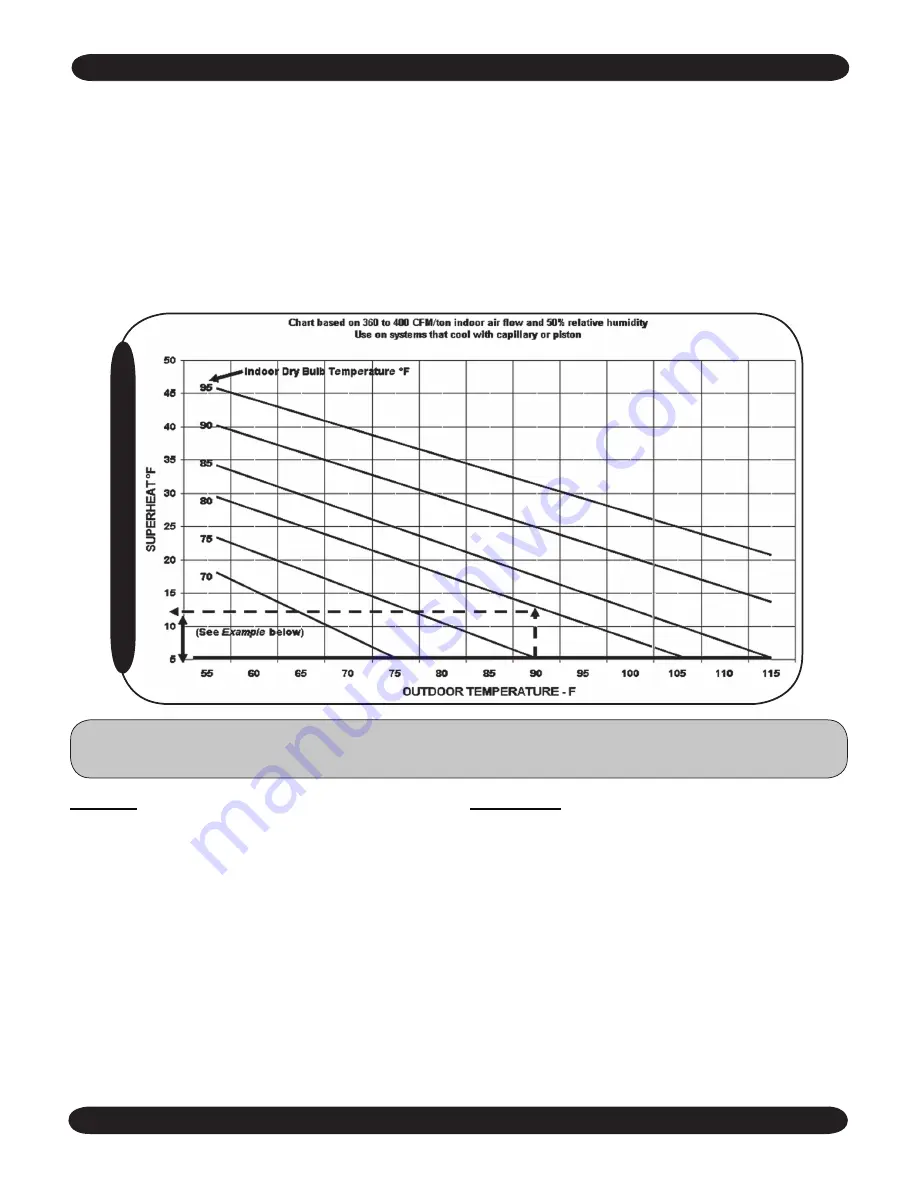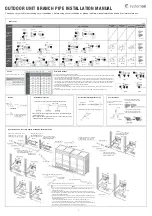
E-mail: [email protected]
Made in Rome, New York, USA
6
SUPERHEA
T CHARGING CHAR
T
FIELD CHARGING
Example:
1. Suction pressure is 65 psi. which equals 38
°
F on
The
R-22 Scale of the Low-Side Gauge.
2. Suction line temperature taken at the unit is 70
°
F. 70
°
F minus 38
°
F equals 32
°
F superheat.
3. Outdoor temperature is 90
°
F; indoor temperature is
80
°
F.
4. Intersection of the indoor-temperature and outdoor-
temperature lines occur on the 12
°
F superheat line.
5. Add charge to obtain 12
°
F superheat.
Instructions:
1. Measure suction pressure and determine evaporator-
refrigerant temperature on R-22 scale of low-side
gauge.
2. Measure suction-line temperature on suction line of
the unit.
3. Measure outdoor and indoor temperatures.
4. Determine from the table what the superheat should
be for the indoor and outdoor temperatures. (Example
indicates 12
°
F superheat.)
5. Adjust charge if needed. Be sure unit is running at
stabilized condition.
The use of the superheat method is highly recommended
for field charging or checking the existing refrigerant
charge in a system. Because each installation is different
in terms of indoor air flow, refrigerant line length, etc.., the
factory charge may not be correct for every application.
To assure the best performance from the air-conditioner,
the refrigerant charge should be checked and adjusted, if
need be, on each installation.
For proper superheat readings, a standard low-side
refrigerant gauge and an accurate thermometer is
needed. A mercury or stem-type thermometer is not
adequate for suction-line temperatures. We recommend
electric thermocouple thermometers (available at most
refrigeration wholesalers); however an accurate remote-
bulb thermometer can be used. When measuring the line
temperature, be sure the thermometer is well installed to
assure accurate measurements. The chart below gives
superheat values at various outdoor temperatures. Allow at
least 5 minutes running time between charge adjustments
for the unit to stabilize.
Note:
If operating superheat is more than 5
°
F above the chart value, add refrigerant. If below the chart
value remove refrigerant. If below the limit line, remove refrigerant.


































